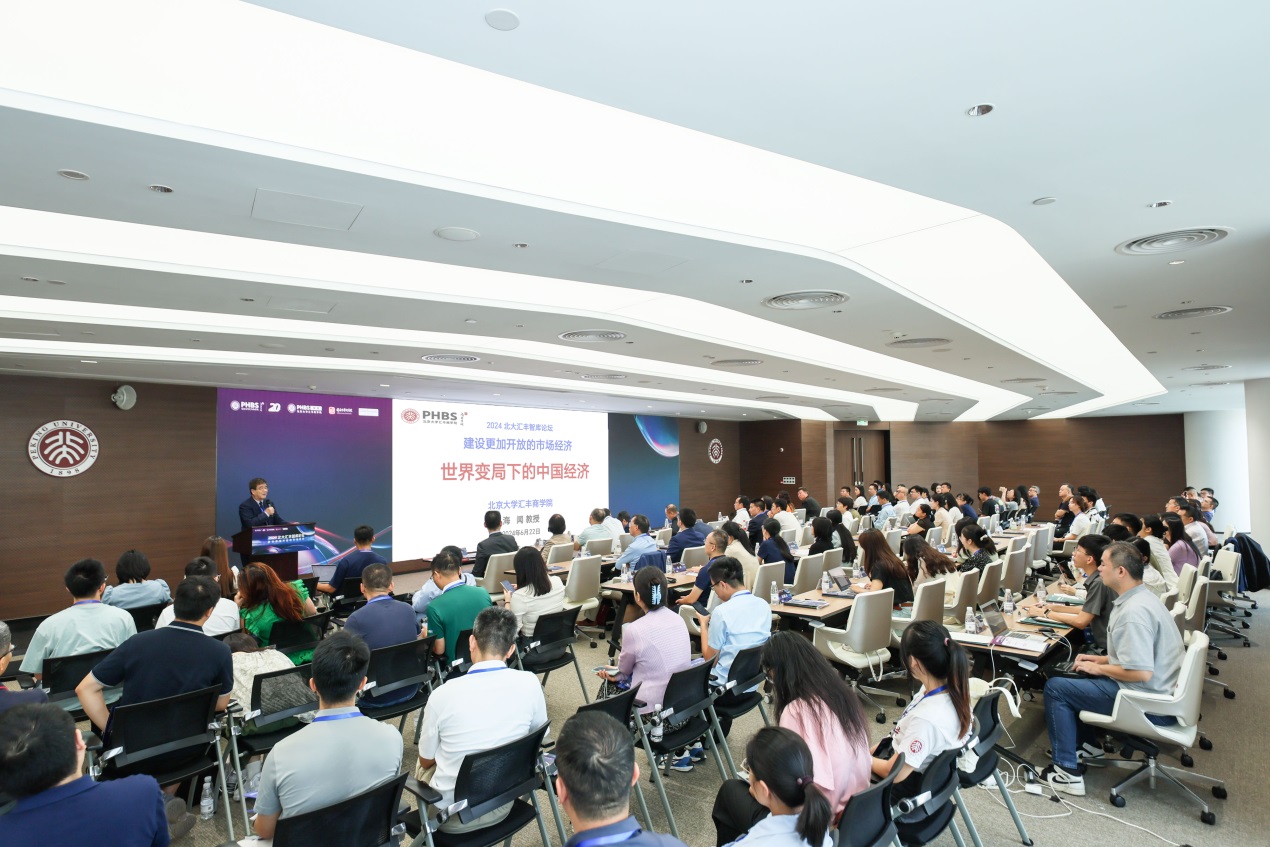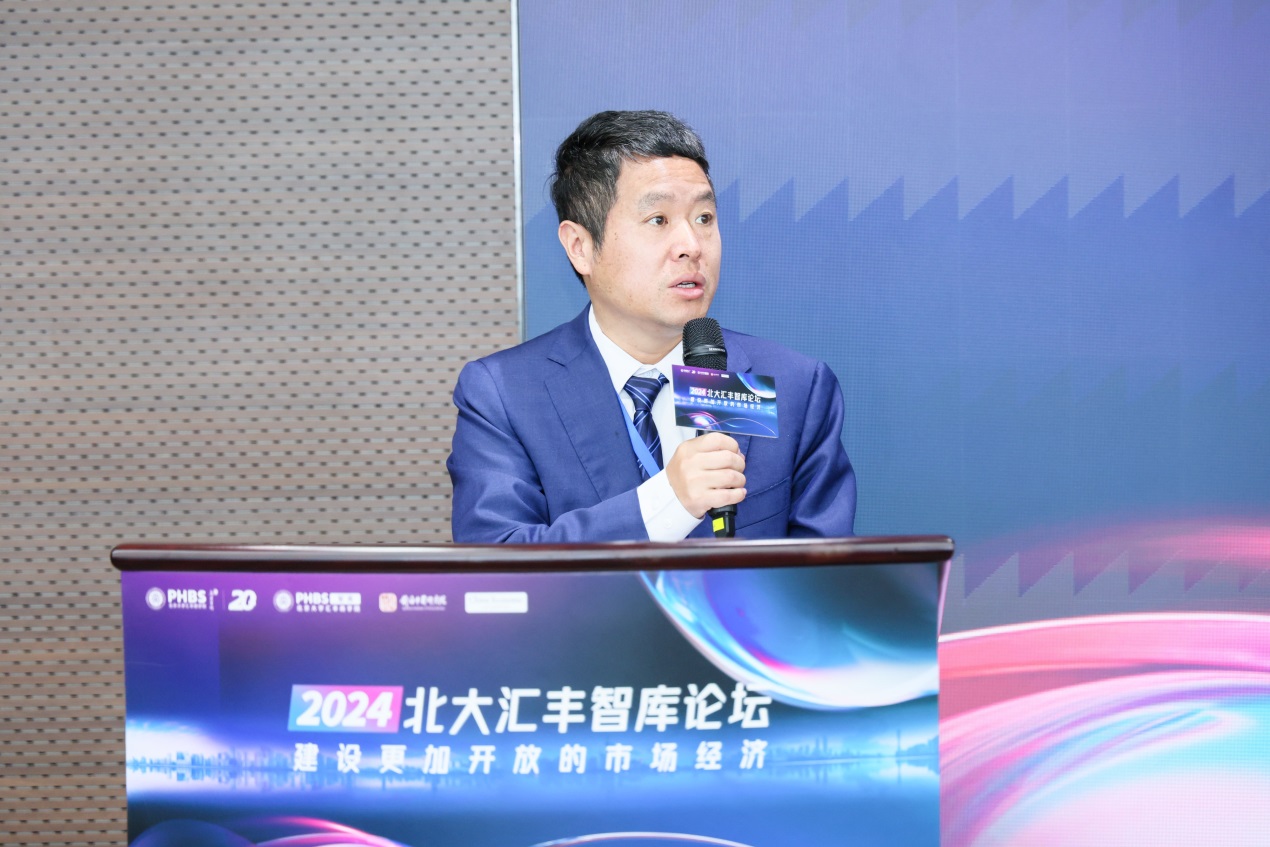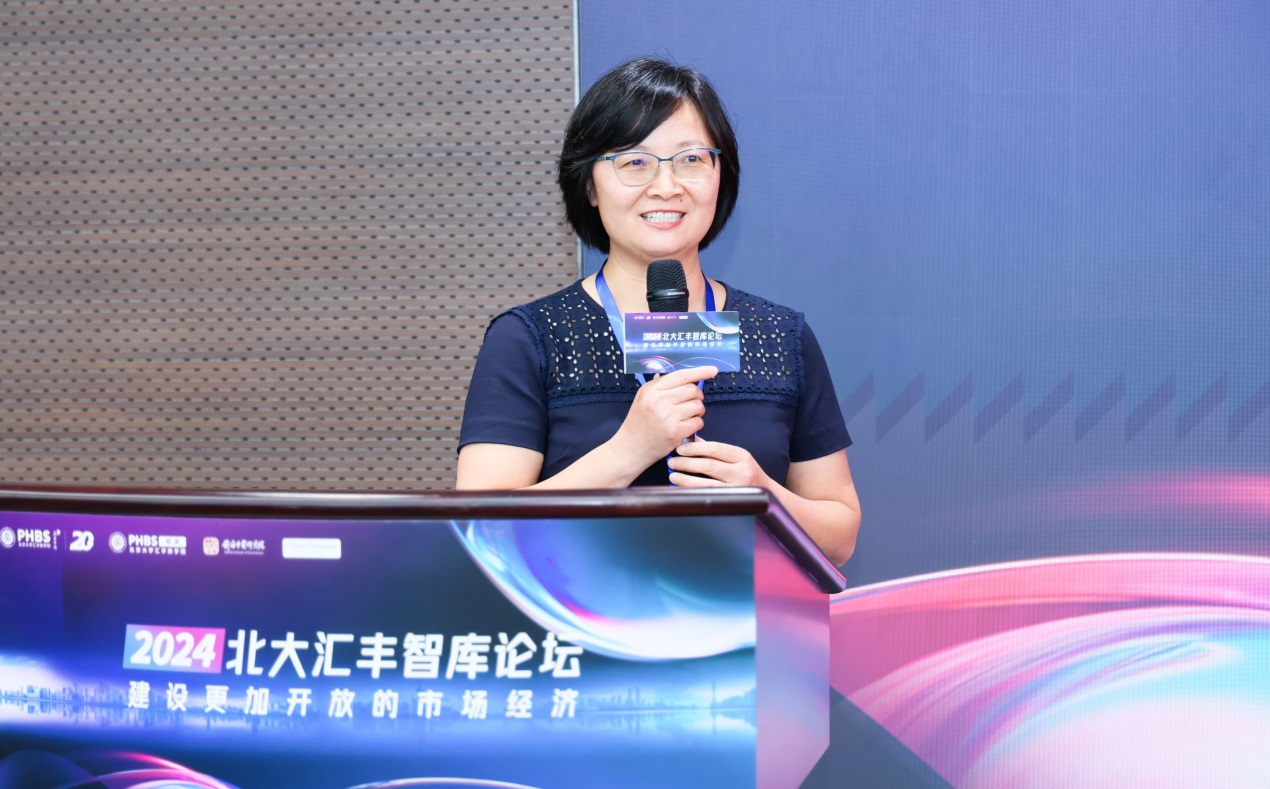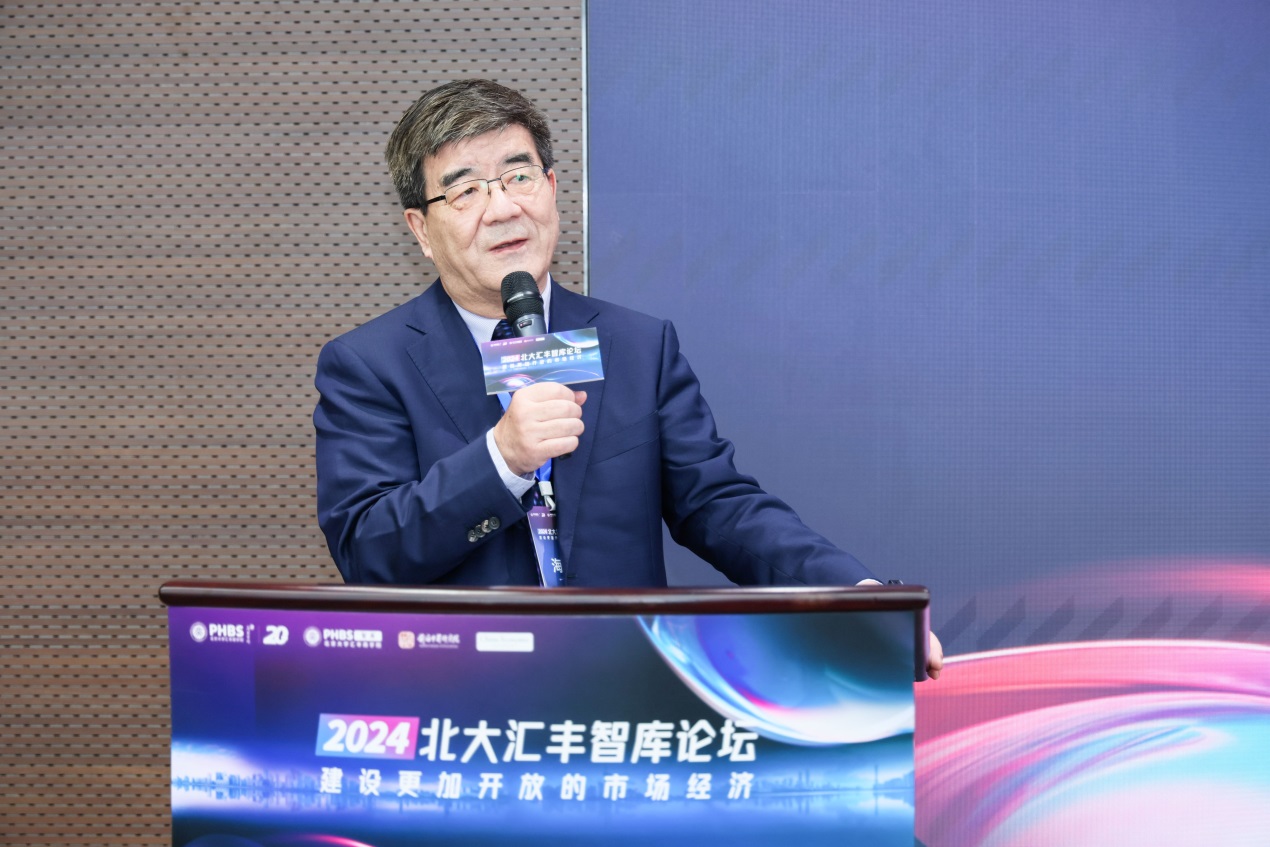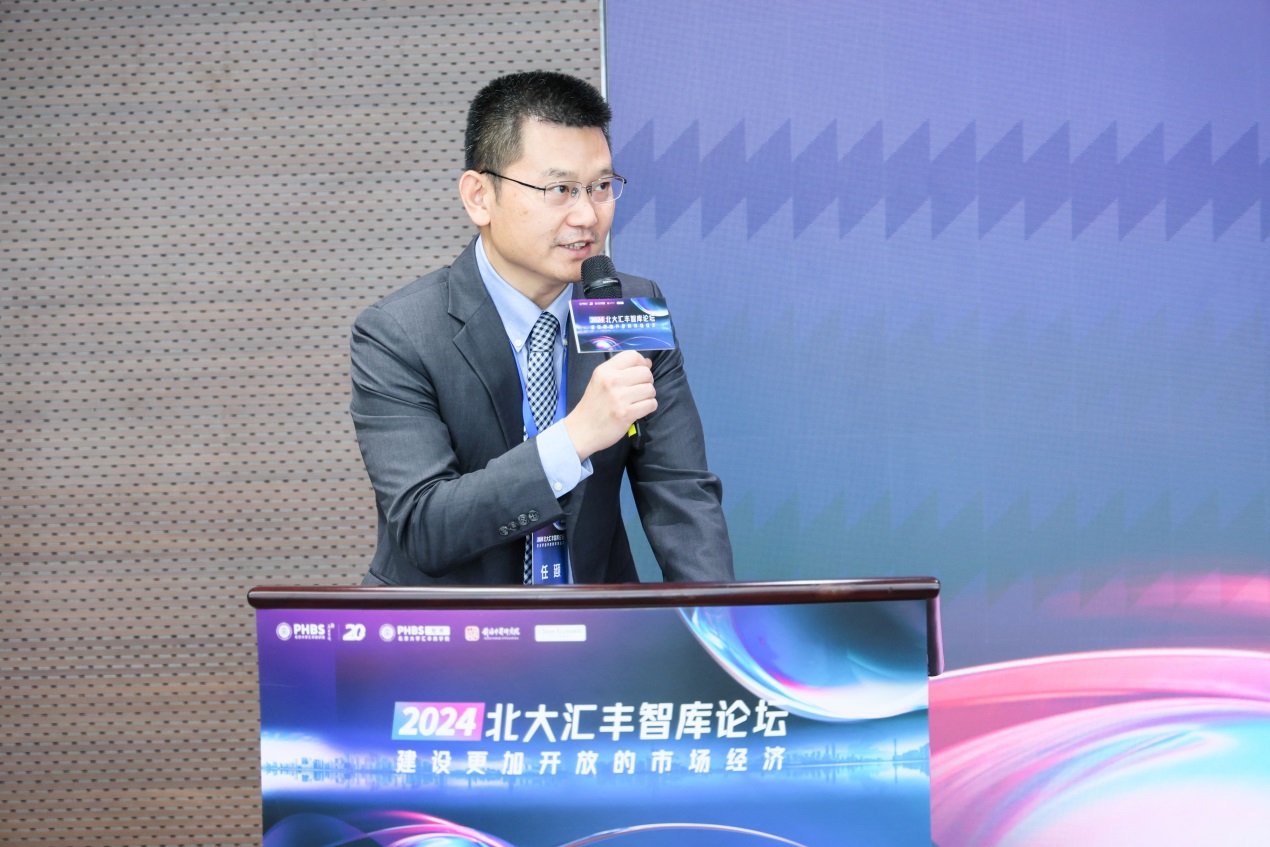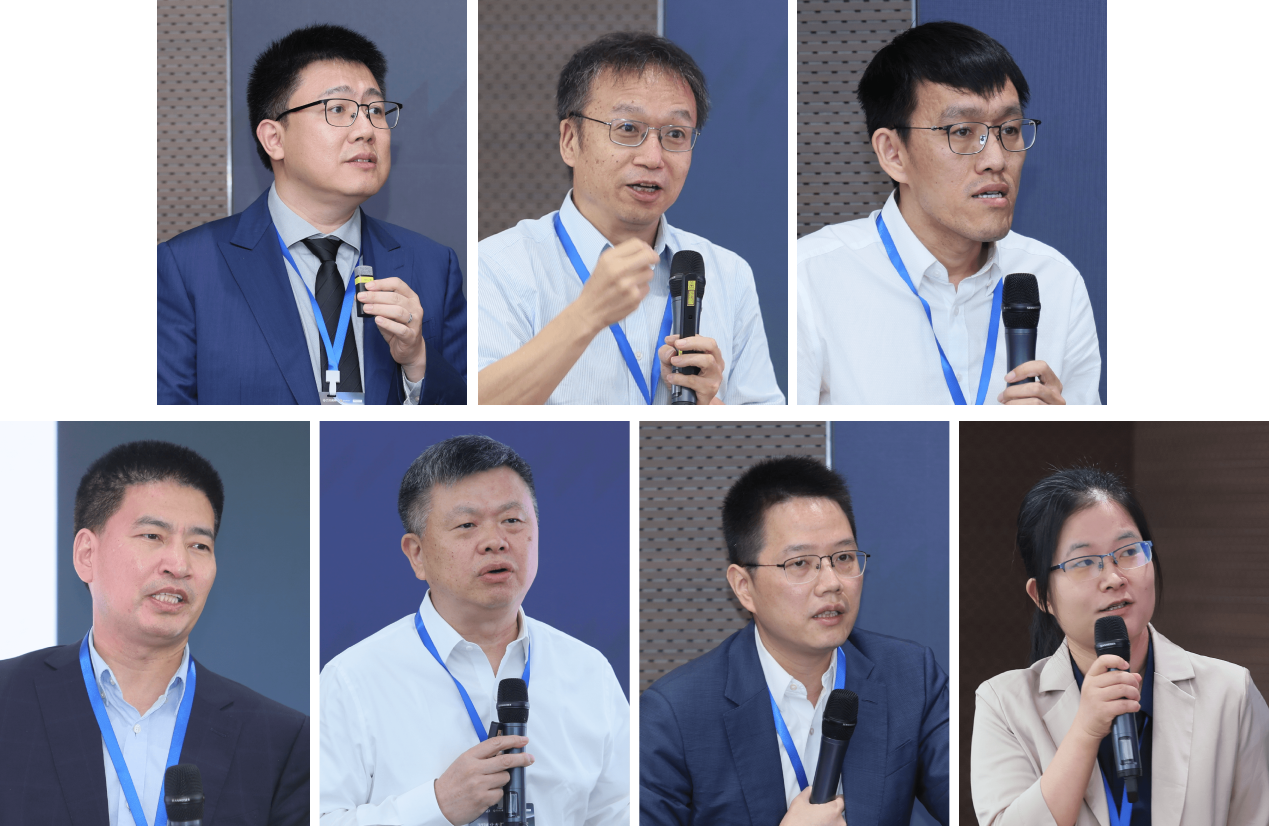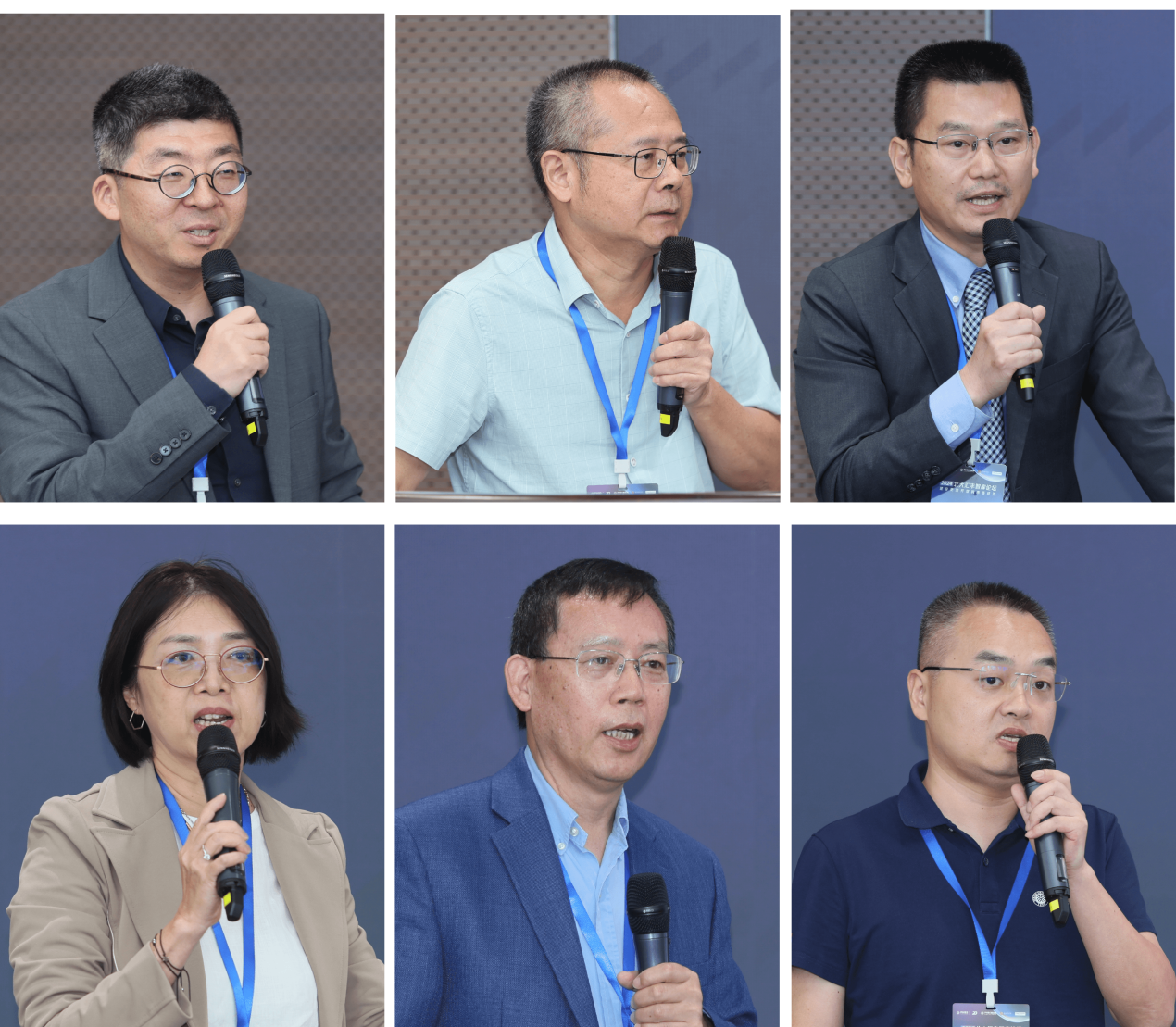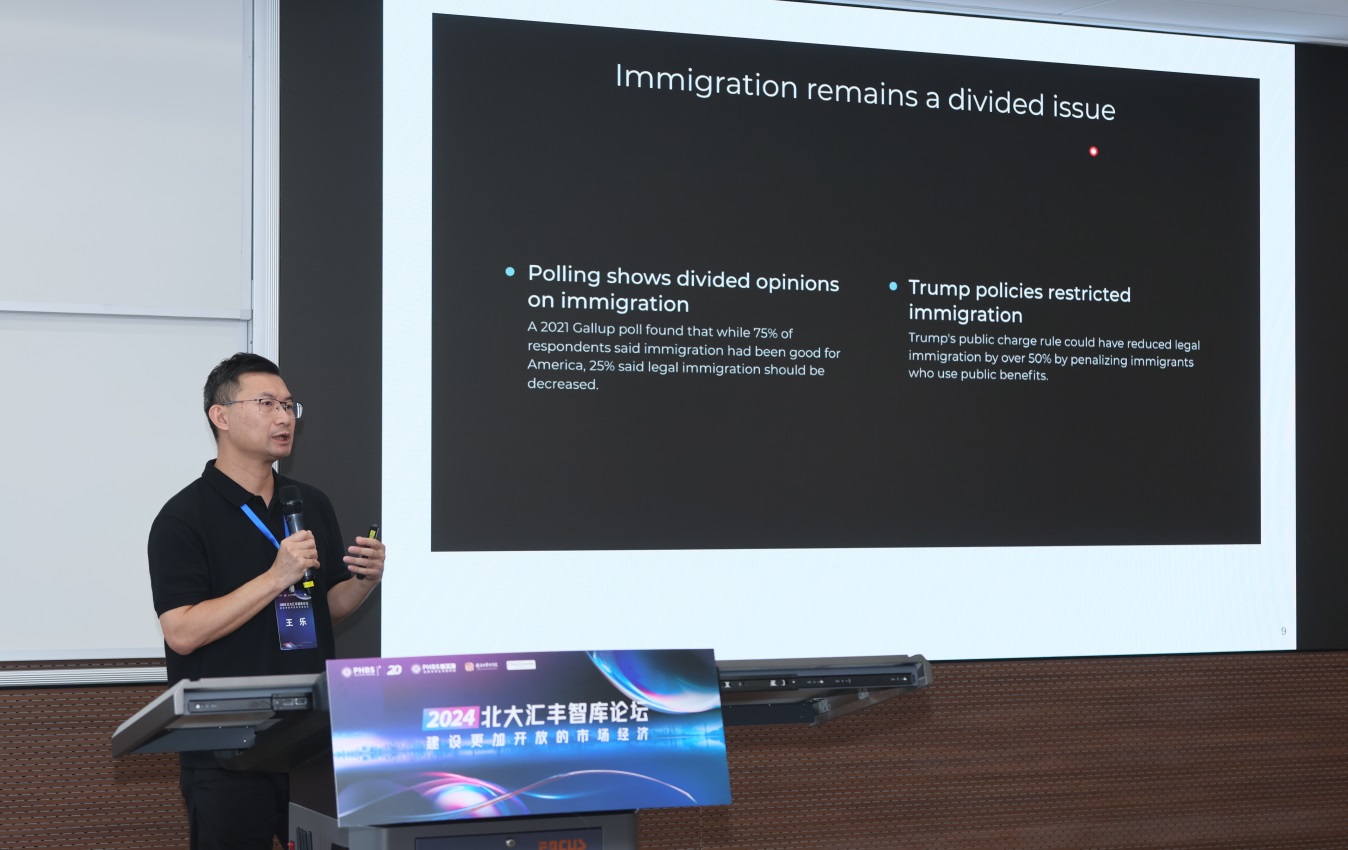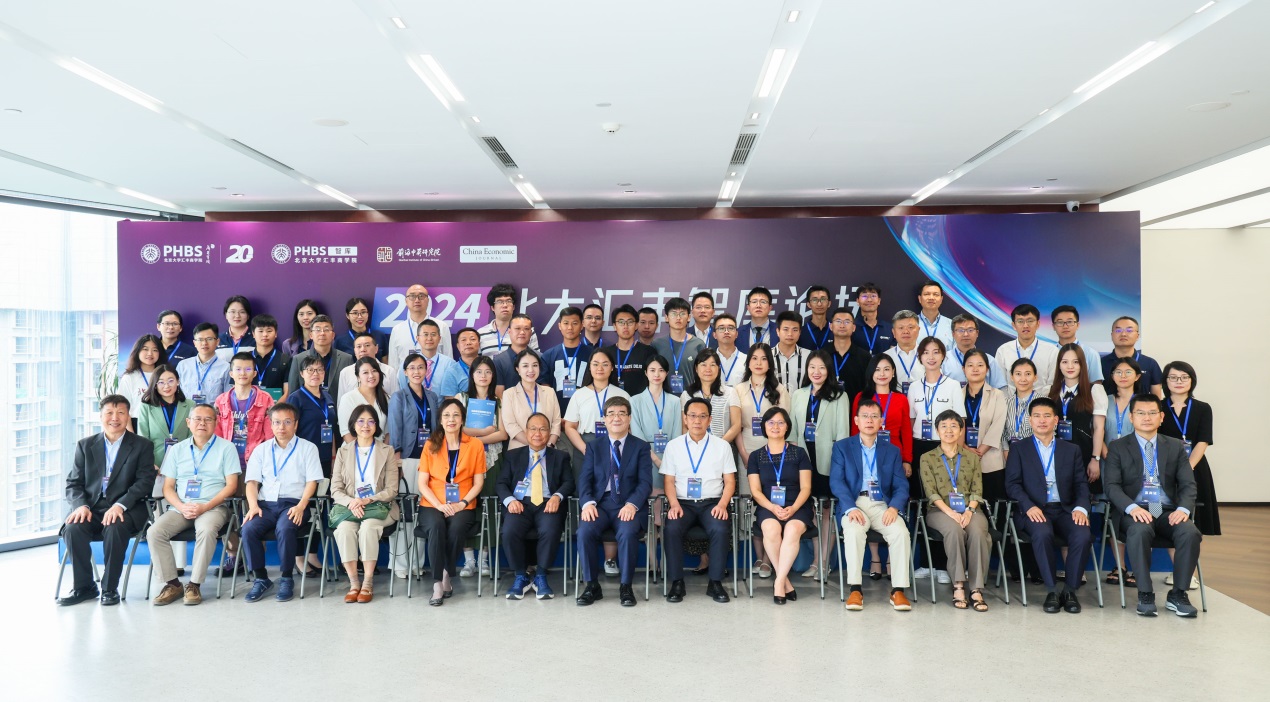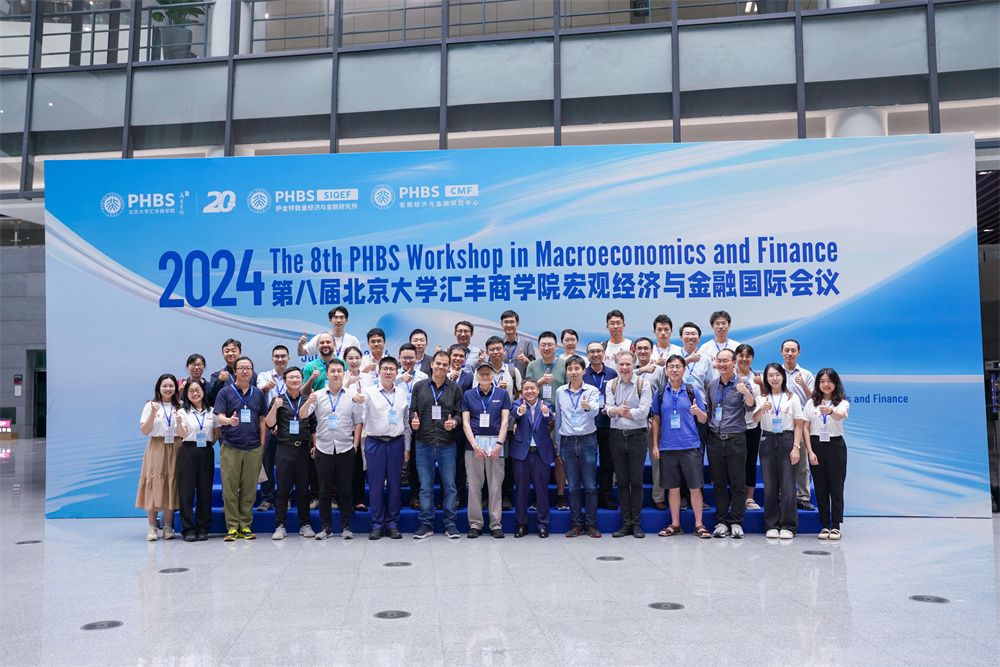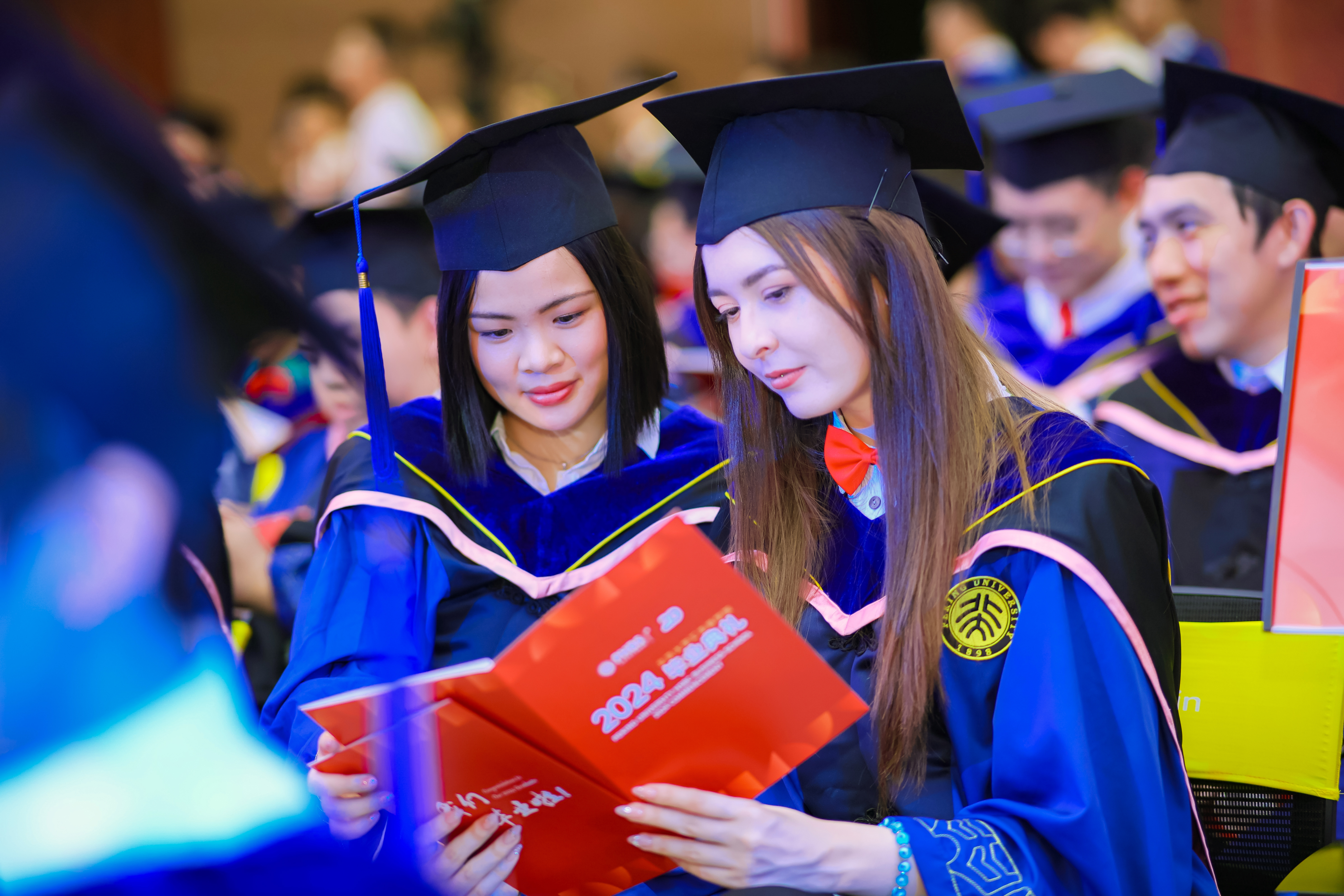Themed "Building a More Open Market Economy," the 2024 Peking University HSBC Business School (PHBS) Think Tank Forum was held on June 22 at the Qianhai Institute of China-Britain. With 20 guest speakers from China, the US, Singapore, Malaysia, and beyond, as well as over 120 industry participants, the forum explored topics like world politics and economy, China's macro economy, financial development, and the Guangdong-Hong Kong-Macao Greater Bay Area. The event was hosted by PHBS, organized by PHBS Think Tank and the Qianhai Institute of China-Britain, and co-organized by China Economic Journal.
The 2024 PHBS Think Tank Forum
Wang Pengfei, Peking University Boya distinguished professor, dean of PHBS, and deputy director of PHBS Think Tank, delivers opening remarks
Professor Wang Pengfei emphasized that PHBS Think Tank integrated resources and combined theory with practice since the establishment, committed to building a new-type think tank platform featuring specialization and internationalization. He noted that the think tank would continue to conduct in-depth research, maintain strong interactions with various sectors, and contribute to high-level opening up and high-quality economic and social development in areas such as financial reform and development, the construction of the Greater Bay Area, coordinated and sustainable urban-rural development, economic and trade cooperation with countries along the Maritime Silk Road, and international trade and investment.
Ni Jinlan, associate professor at the University of Washington and co-editor-in-chief of China Economic Journal (CEJ)
In her speech, Professor Ni Jinlan outlined the journal's key details and initiatives. She noted that founded in 2008, CEJ is currently co-hosted by the Center for Chinese Economic Research (CCER) at Peking University and the Chinese Economists Society (CES) in the US. It is published and distributed globally by Routledge Journals, with the aim to introduce in-depth observations and professional analyses on China's economic development to English-speaking readers. In recent years, the journal's academic reputation has significantly grown, with its latest impact factor standing at 3.7 and attaining a JIF Quartile ranking of Q1. She welcomed contributions from scholars and encouraged them to work together to enhance the international influence of CEJ.
Hai Wen, vice chairman of Peking University Council (formerly vice president), chair professor, founding dean of PHBS, and director of the PHBS Think Tank
In his keynote address titled "China's Economy in the Context of Global Transformations," Professor Hai Wen offered insights and analysis from two perspectives: "recent global transformations" and "China's economy in the midst of these changes." He emphasized that despite the myriad of uncertainties and emerging challenges that China's economy may encounter in the short, medium, and long-term, it continues to progress in a historically significant growth phase, offering vast potential for further development. He underscored that, faced with challenges and opportunities, the keys are self-strengthening, adherence to market principles, legal frameworks, and international standards, proactive action, and responsibility, which could enable individuals to successfully manage their businesses, foster economic growth, and contribute to peace and development in China and the world.
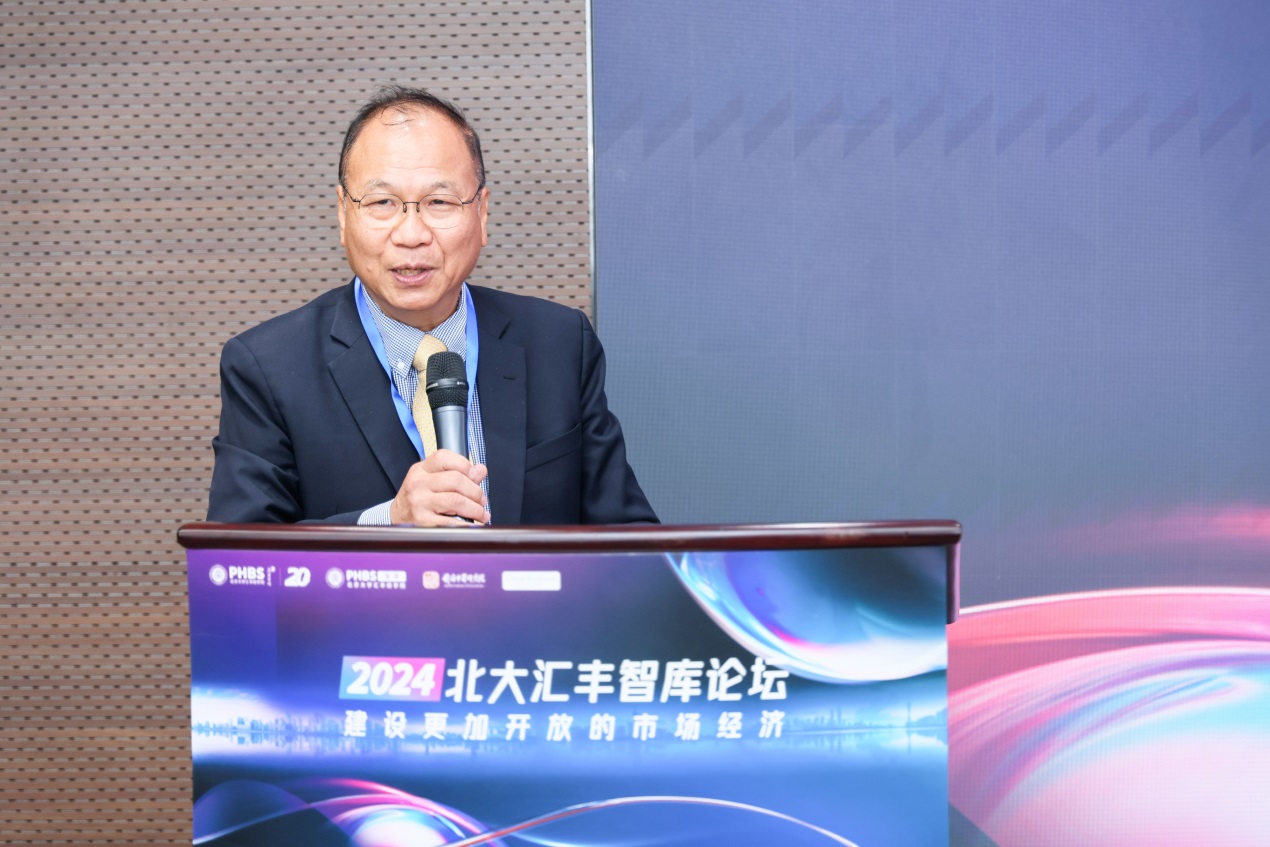
Wing Thye Woo, vice president for Asia of the United Nations Sustainable Development Solutions Network (SDSN), director of the East Asia Program at Columbia University's Center on Sustainable Urban Development, and emeritus professor of Economics at the University of California, Davis
In his keynote speech on "Achieving Global Shared Prosperity under the New International Normal," Professor Wing Thye Woo analyzed the challenges of major power competition and climate change. Tracing the new normal to Adam Smith's prediction, he proposed solutions to halt the escalating tensions between China and the US. He argued that decoupling trade, technological, and geostrategic competitions through an arms control treaty and an agreement on unfair industrial policies could prevent the consequences of this vicious cycle. According to Professor Woo, the lack of trust between the two nations hindered consensus on these critical issues. And he suggested that a third party could play a constructive role in bridging the gap and fostering mutual trust between the two major powers.
Ren Ting, the party secretary and associate dean of PHBS, and deputy director of PHBS Think Tank, presided over the opening ceremony and keynote speeches.
During the roundtable discussion, the participating guests engaged in in-depth exchanges on topics such as macroeconomics, international trade investment and cooperation, as well as the integration and development of the Greater Bay Area.
Roundtable discussion participants (from left to right): Li Kai, Gan Li, Li Chengjian, Zhou Jingtong, Shen Minggao, Yu Xiangrong, and Zou Xin
During the discussion themed "Challenges and Countermeasures Facing China's Macro Economy" hosted by Li Kai, tenured associate professor at PHBS, several esteemed scholars offered their insights and actively exchanged their views. Among them were Gan Li, dean of the School of Economics and Management Research at Southwestern University of Finance and Economics and professor of economics at Texas A&M University; Li Chengjian, director of the Second Research Office of the Macroeconomic Research Department at the Development Research Center of the State Council; Zhou Jingtong, deputy dean of the Bank of China Research Institute; Shen Minggao, global chief economist of GF Securities and dean of the Industry Research Institute; Yu Xiangrong, chief economist of Citibank China; and Zou Xin, associate researcher at PHBS.
Roundtable discussion participants (from left to right): Lin Shuanglin, Wang Yan, Ni Jinlan, Chen Dingding, Tong Yueting, and Cai Rong
The roundtable discussion themed "Deepening Trade and Investment Cooperation - New Momentum and New Models," was hosted by Professor Lin Shuanglin, deputy director of the PHBS Think Tank. Among the participants were Wang Yan, former senior economist of the World Bank and senior fellow at the Global Development Policy Center of Boston University; Ni Jinlan, associate professor at the University of Washington and co-editor of China Economic Journal; Chen Dingding, president of the Haiguo Tuzhi Institute and a professor at the School of International Relations of Jinan University; Tong Yueting, senior fellow at the East Asian Institute of the National University of Singapore; and Cai Rong, deputy secretary-general of the PHBS Think Tank. All of them shared their profound insights and engaged in lively discussions.
The roundtable discussion participants (from left to right): Gu Yizhen, Fu Zhengping, Ren Ting, Li Zhilan, Song Shunfeng, and Cheng Yuwei
The roundtable discussion, themed "Promoting the Development of Guangdong, Hong Kong, and Macao through High-Level Institutional Openness," was hosted by Gu Yizhen, associate professor of PHBS. Among the participants were Fu Zhengping, dean of the Institute of Free Trade Zones at Sun Yat-sen University; Ren Ting, party secretary and deputy director of the PHBS Think Tank; Li Zhilan, professor at City University of Hong Kong's Department of Public and International Affairs, and director of the Hong Kong Sustainable Development Research Centre; Song Shunfeng, tenured professor from the Economics Department of the University of Nevada, Reno; and Cheng Yuwei, associate researcher of PHBS Think Tank. All the participants actively engaged in a wide-ranging discussion on the related topics.
Paper symposium venue
PHBS Think Tank, along with China Economic Journal, jointly launched a paper solicitation initiative for this forum, and11 papers were selected for discussion from the submissions during the forum.
The group photo of participants
Since its establishment, PHBS Think Tank has been at the forefront of China's reform and opening up, providing research findings and policy recommendations for the government, enterprises, and the public through publications, reports, lectures, and meetings. As an annual gathering of leading intellectuals, the forum upholds its mission of “standing in the Greater Bay Area, embracing the world, and serving the nation,” striving to contribute valuable intellectual capital through fostering a robust exchange of ideas and insights.
Source: PHBS Think Tank, and Public Relations & Media Office
By Annie Jin





